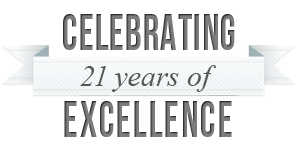You often hear early in your career path to find a leadership model. Find people you believe to be good leaders, and then copy their strengths. I’m fortunate that I didn’t have to look very far to find my leadership models.
My parents, Pratima and Mukund Shah, came to the United States with only seven dollars in their pockets. They didn’t know anyone here and barely spoke English. But they worked hard to build their lives. As I’ve established my own life and career, I see the profound leadership lessons they’ve embedded in me through their remarkable journey.
Lesson 1: Have the courage to leave your comfort zone. I think about the courage my parents had to leave their family, friends, and country to pursue a better life. This has inspired me to push. Even small steps in a new direction can open up more possibilities. I’ve discovered new strengths and interests that would have gone unrecognized had I not had the courage to try something new.
Lesson 2: Don’t leave your dreams to chance. My parent’s journey showed me that no one will hand you your dreams—you must pursue them. Early on in my career, I found it easy to become consumed by my checklist of daily responsibilities. I forced myself to stop and think about my career path and long-term goals. I often asked myself, what do I hope to accomplish? What resources and skills do I need? If I didn’t make time to set my direction, I could’ve listlessly floated along with my dreams forever out of reach.
Lesson 3: Find balance. One reason why my parents’ journey seemed so commonplace was because they were always present for me. They never brought home the problems and struggles of establishing their careers. Now, I realize how important balance is to success. Without appropriate work/life balance we feel stressed, overworked, underappreciated, and generally dispassionate about our jobs. But when we are true to ourselves, our family, and interests, we carry that enthusiasm into the office and into our homes. Balance shouldn’t be an inspirational goal, it should be a requirement!
My parents never sat me down to learn these lessons. They simply lived their lives. But their example has provided a leadership model that has had a profound impact on my career and life.
How has education affected your career?
I decided to extend my undergraduate education with a doctorate in pharmacy. I knew this would be difficult, but it would open up more opportunities later in my career. After, I pursued a one-year residency at the VA in Buffalo, New York. This experience helped shaped my career. I saw firsthand how seniors often don’t have a voice in advocating for their healthcare. This motivated me to receive a certification in geriatrics, becoming one of the first pharmacists in New York to earn a Certified Geriatric Pharmacist (CGP).
What does it take to succeed and stay competitive in your position/field?
The ability to change is the key to success. Our industry is constantly changing. New technologies, medicines, diseases, and regulations all constantly change how we do business. We need to proactively adapt and innovate so that we can drive our own change, rather than respond and be forced into change by other factors.







